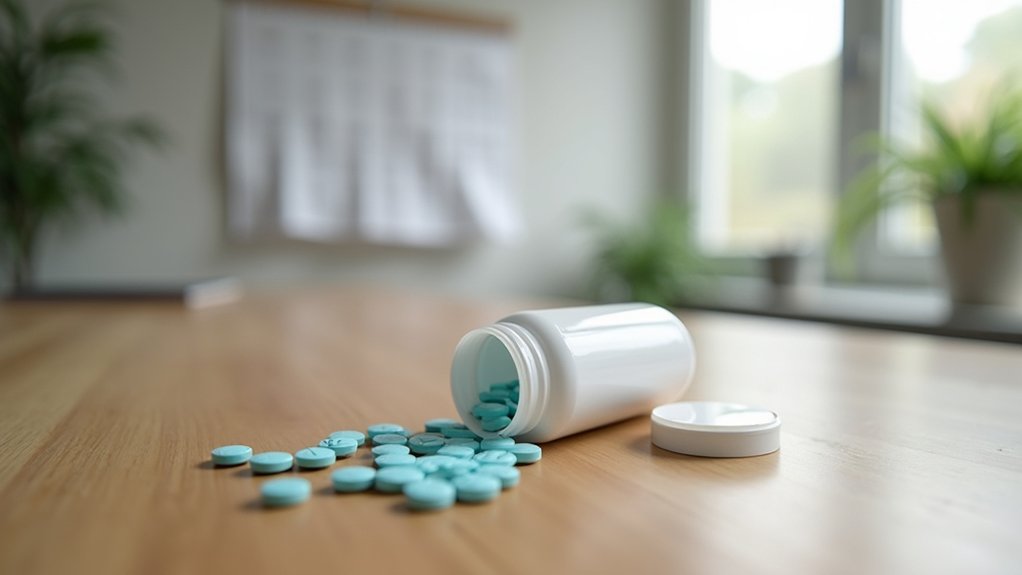Alcohol and Hormone Imbalance: What’s the Connection?
Alcohol consumption can have numerous effects on the body, not least among them is its impact on hormone balance. Alcohol’s capacity to disrupt the delicate equilibrium of the endocrine system can lead to significant consequences for both physical and mental health. Understanding how alcohol interacts with our hormones is critical; it elucidates the far-reaching implications of drinking habits. This is true whether it be stress response and mood regulation, or reproductive health and metabolic processes.
At Immersive Recovery, our men’s rehab center in Encinitas, California, provides our clients with a variety of treatments and resources to successfully break the cycle of alcohol addiction.
What are Hormones?
Hormones are biochemical messengers that play a crucial role in regulating physiological processes throughout the body. Produced by various glands in the endocrine system, they travel through the bloodstream to target organs and tissues; they influence a myriad of functions from growth and metabolism to mood regulation and reproductive cycles. There are various types of hormones and their functions all serve a different purpose in the body.
What Are The Different Types of Hormones?
The intricate tapestry of the human endocrine system is woven with a diversity of hormones, each serving distinct functions. Among them are growth hormones, fostering development and regeneration; insulin, regulating glucose metabolism; thyroid hormones, modulating energy utilization and metabolic rate; sex hormones like estrogen and testosterone, governing reproductive processes and secondary sex characteristics; and stress hormones such as cortisol and adrenaline, which orchestrate the body’s response to stressors.
The regulation of these hormones is a complex interplay between the brain, specifically the hypothalamus and pituitary gland, and various endocrine glands throughout the body. The hypothalamus monitors hormone levels in the bloodstream and sends signals to the pituitary gland to produce or inhibit specific hormones as needed. The pituitary gland then releases these hormones into the bloodstream
Insulin
Insulin is a crucial hormone produced in the pancreas, and plays a vital role in metabolism; it enables cells to absorb glucose from the blood to use for energy or store it for future use. Insulin is instrumental in regulating blood sugar levels; its deficiency or resistance can lead to diabetes mellitus, a chronic health condition.
This type of hormone is composed of two polypeptide chains, A and B, connected by disulfide bonds. The body’s production of insulin is tightly regulated to maintain normal blood sugar levels. When food containing carbohydrates is consumed, the pancreas releases insulin into the bloodstream in response to rising blood glucose levels.
One of the main functions of insulin is to stimulate cells to absorb glucose from the blood. This is particularly important for muscle and fat cells; they require insulin to transport glucose into their membranes. In contrast, brain and liver cells can absorb glucose without the help of insulin.
Thyroid Hormone
The thyroid hormone refers to two primary hormones produced by the thyroid gland located in the neck: thyroxine (T4) and triiodothyronine (T3). These hormones play a crucial role in the body’s metabolism, influencing the speed at which cells and organs work. They are vital for regulating body temperature, heart rate, and even brain development. Insufficient or excessive production of thyroid hormones can lead to hypothyroidism or hyperthyroidism, respectively, with a significant impact on an individual’s health and well-being.
The importance of thyroid hormones extends beyond simple metabolic regulation; they are integral to the overall homeostasis of the body. Proper levels of thyroid hormones are critical for the development of the nervous system, particularly in infants and children. In adults, these hormones modulate cognitive function, digestive processes, and emotional stability, while also contributing to the maintenance of skin, hair, and nail health. Without the balancing act provided by T3 and T4, a host of bodily functions can become irregular, leading to systemic health issues that affect quality of life.
Sex Hormones
Sex hormones are a group of hormones that play an essential role in the regulation of reproductive cycles, sexual development, and behavior. The primary sex hormones are estrogen, progesterone, and testosterone, which are present in varying levels in all sexes and contribute to secondary sexual characteristics, such as breast development and facial hair. They also influence libido, fertility, and other aspects of our physical and emotional health.
Stress Hormones
Stress hormones, primarily cortisol and adrenaline, are biochemical substances released by the body in response to perceived threats or pressure. These hormones trigger the body’s ‘fight or flight’ response, preparing it to either confront or flee from the stressor. Short-term activation of stress hormones can be beneficial, providing the necessary energy and alertness to handle challenging situations. However, chronic activation can lead to a host of health issues, including weakened immunity and increased risk for chronic diseases.
Does Drinking Alcohol Affect Hormones?

Alcohol consumption can have a significant impact on the endocrine system, influencing various hormones in the body. Alcohol can affect hormones by doing the following:
- Altering blood sugar levels by affecting insulin release
- Disrupting the stress response system by influencing cortisol
- Imbalances in reproductive hormones such as testosterone and estrogen
Alcohol’s impact on hormone function is far more complicated than just surface-level impacts. These hormonal changes can have both short-term and long-term consequences on an individual’s overall health and well-being.
The Effect of Alcohol on Hormones
In the short term, excessive alcohol consumption can lead to disrupted sleep patterns, mood swings, and irritability due to changes in hormone levels. It can also contribute to weight gain or loss as hormones play a crucial role in regulating metabolism. Additionally, binge drinking or heavy drinking can increase the risk of accidents and injuries due to impaired judgment and coordination.
The long-term effects of alcohol on the endocrine system can be more severe. Chronic alcohol consumption can lead to hormonal imbalances, which can result in a range of health issues. These health issues include infertility, erectile dysfunction, and menstrual irregularities. It can also increase the risk of developing certain types of cancer due to changes in estrogen and testosterone levels.
Alcohol abuse can also have psychological effects on an individual’s mental health. Excessive alcohol consumption has been linked to certain symptoms. Some of these include increased anxiety, depression, and other mood disorders. This all happens due to the impact of alcohol on neurotransmitters in the brain.
Additionally, long-term alcohol abuse can also lead to organ damage, particularly in the liver. The liver plays a crucial role in hormone regulation and metabolism, and excessive alcohol consumption can impair its function; this leads to hormonal imbalances and other health complications.
Blood Sugar Levels and Alcohol
In the context of health and wellness, understanding the impact of alcohol consumption on blood sugar levels is crucial; this is particularly true for those with diabetes or those who are at risk. Alcohol has a complex effect on blood sugar regulation; while moderate amounts might cause blood sugar levels to rise, excessive intake can lead to a dangerous drop in blood sugar levels. This is especially true for those on certain diabetes medications. It’s important for those monitoring their glucose levels to consider these effects.
Reproductive Functions – Sex Hormones and Alcohol
The interplay between sex hormones and alcohol can have significant effects on the body. Alcohol consumption can impact hormone levels, potentially disrupting the delicate balance regulated by the endocrine system. In both men and women, chronic alcohol use may lead to a decrease in the production of sex hormones; this can result in a variety of health issues including reproductive problems and decreased bone density. Understanding these effects is critical for making informed decisions about alcohol consumption and managing its impact on hormonal health.
“Feel Good” vs “Feel Bad” Hormones
Hormones play crucial roles in regulating our mood and overall well-being, often referred to colloquially as “feel good” and “feel bad” hormones. Serotonin and dopamine, for instance, are key chemicals in the brain associated with happiness and pleasure. These are often boosted by activities like exercise and exposure to sunlight (arguably the antithesis of alcohol). On the other hand, excessive production of cortisol, commonly known as the stress hormone, can lead to feelings of anxiety and unhappiness. Managing a healthy balance of these hormones is essential for maintaining emotional stability and a positive outlook on life.
How Does Alcohol Affect Testosterone Levels?
Chronic alcohol consumption is known to hurt testosterone levels, leading to a decrease in this vital hormone. Alcohol can disrupt the endocrine system and impair the testes’ ability to produce testosterone. This can result in a range of consequences such as reduced muscle mass, lower libido, and fertility issues among others. Individuals need to understand these potential impacts.
How Does Alcohol Affect Estrogen Levels?

Alcohol consumption can significantly influence hormone levels in the body, particularly estrogen. The liver, which is responsible for metabolizing both alcohol and hormones, can become impaired with excessive alcohol intake. This leads to elevated estrogen levels because it is less able to metabolize the hormone efficiently. An imbalance in estrogen can increase the risk of health issues, such as breast cancer and other hormone-sensitive conditions.
How Long Does It Take For Hormones To Balance After Quitting Alcohol?
The time it takes for hormones to balance out after quitting alcohol can vary significantly from person to person; generally, it can range from a few weeks to several months. As the body adjusts to the absence of alcohol, systems that were disrupted, including hormonal pathways, begin to regulate. Some individuals may experience an improvement in hormonal balance quite rapidly, while for others, the process may be slower and more gradual.
Our Alcohol Rehab Center in San Diego, California Can Help
At Immersive Recovery, our priority is to help those struggling with alcoholism. Alcohol abuse can have a disastrous impact on hormone levels. If you or a loved one would like to learn more, you can contact us here.





